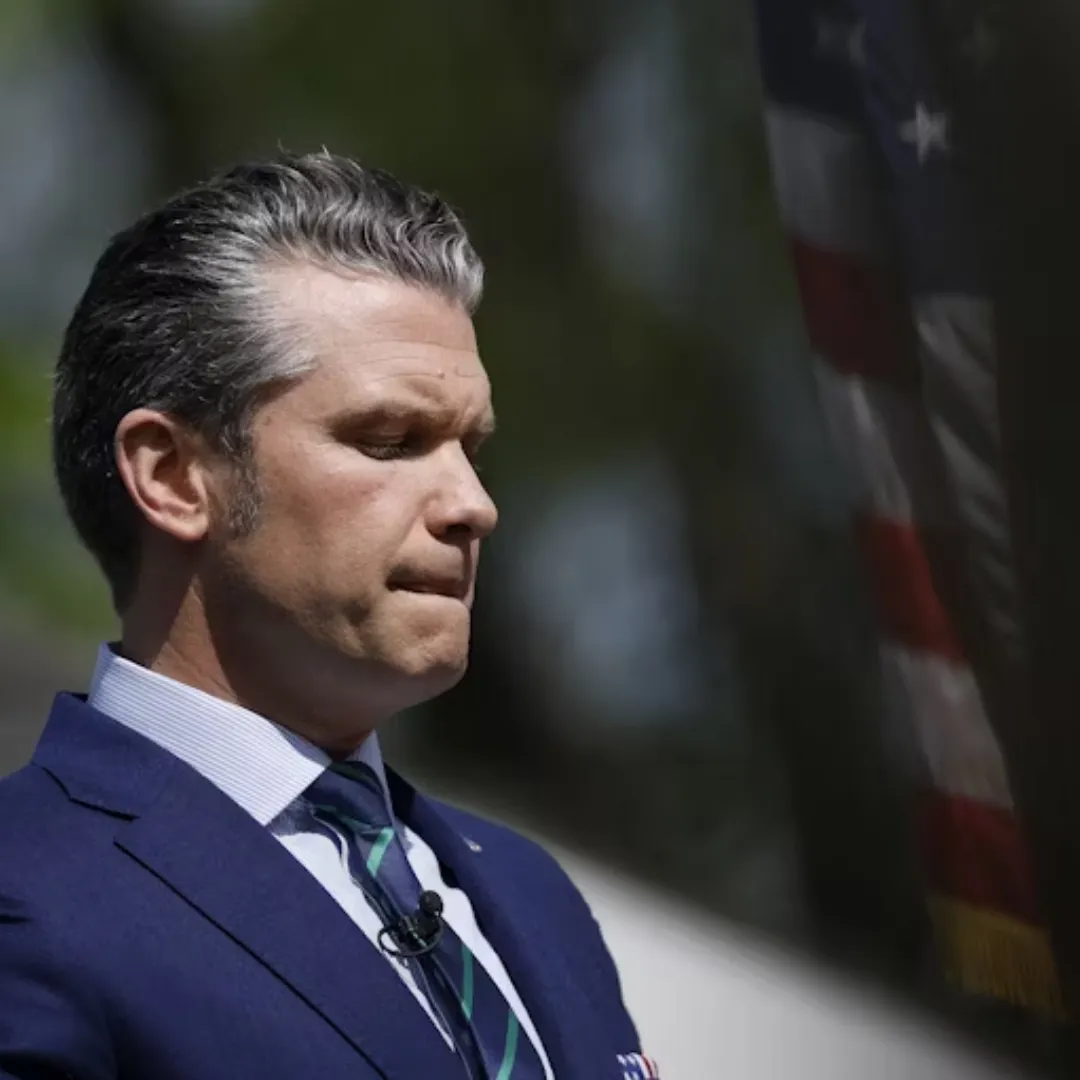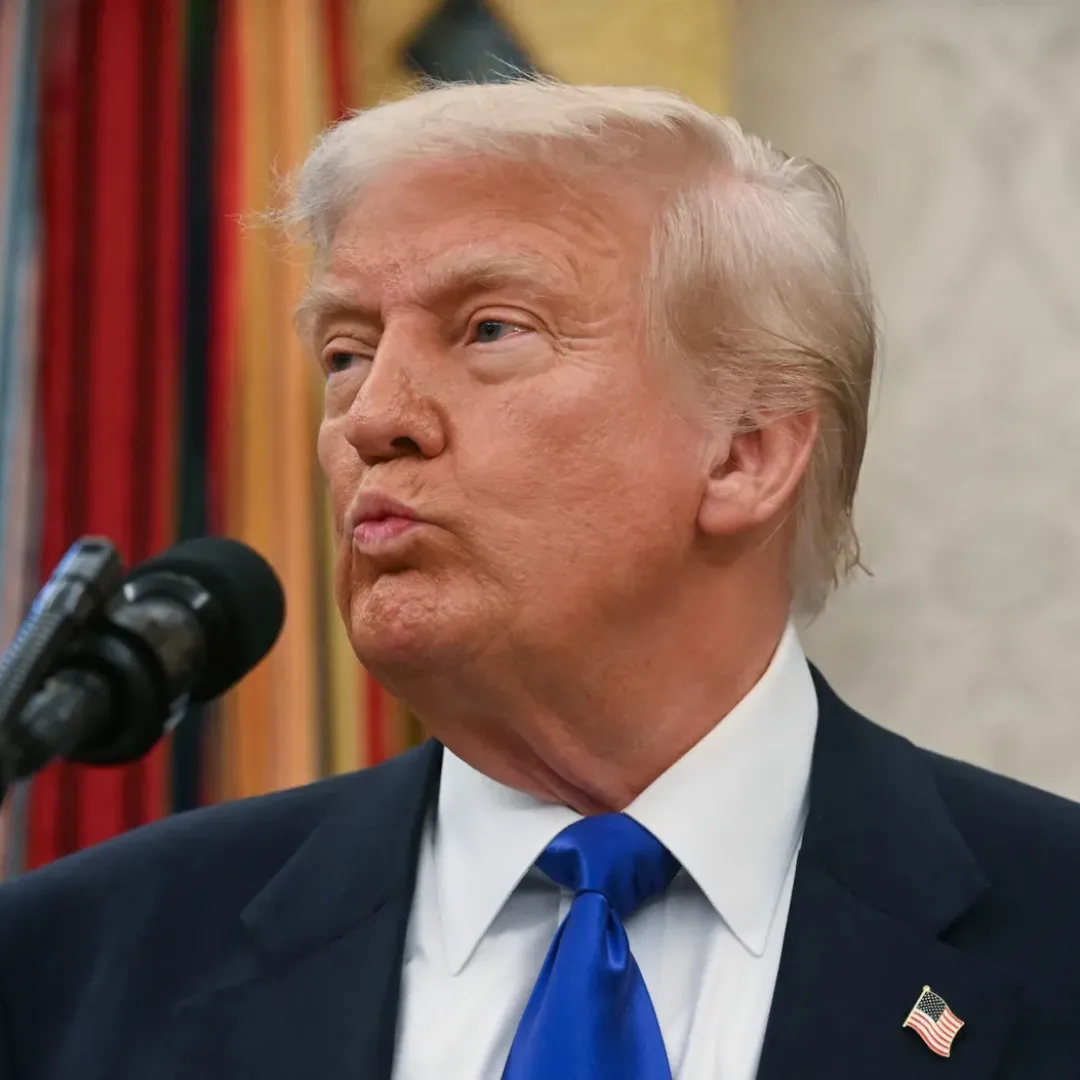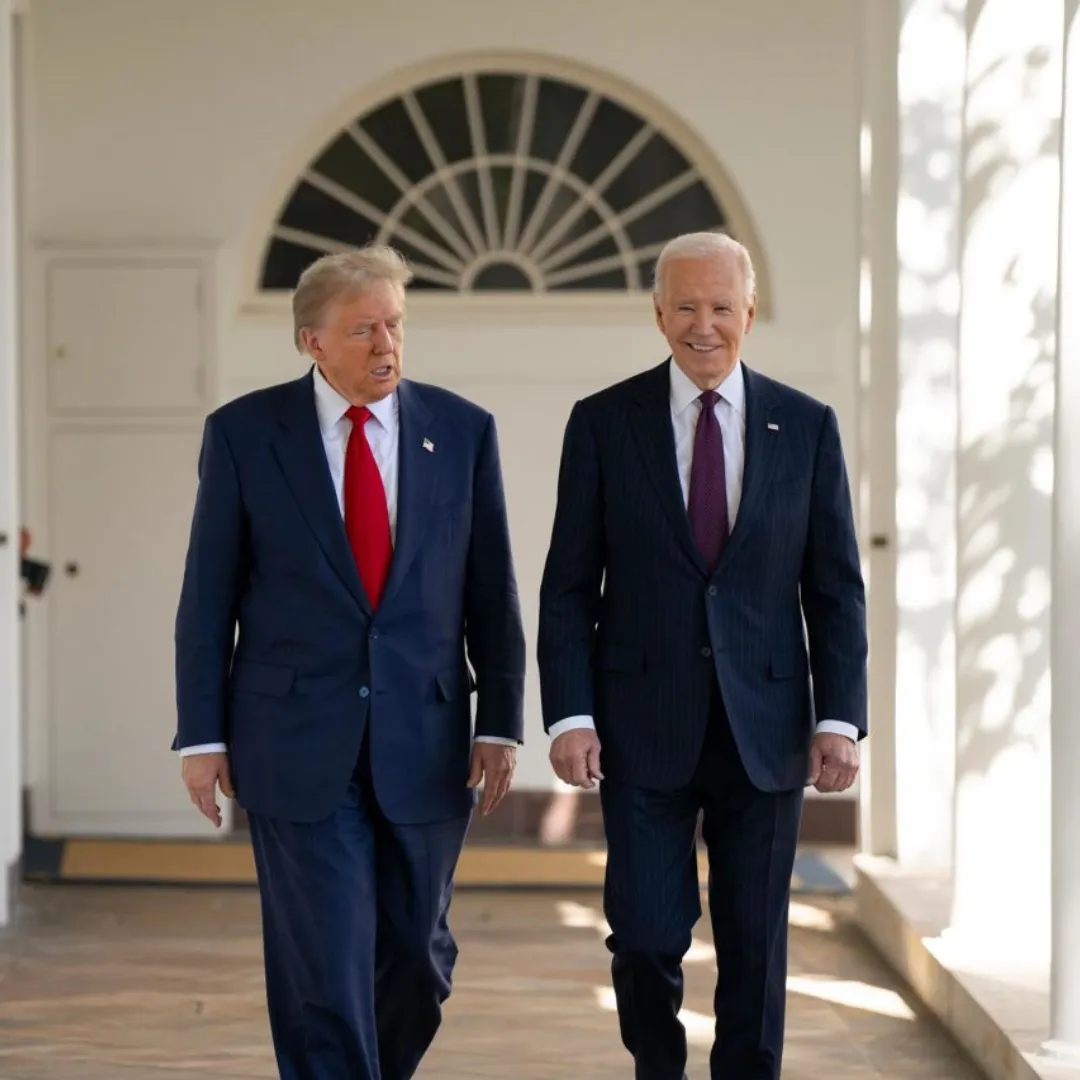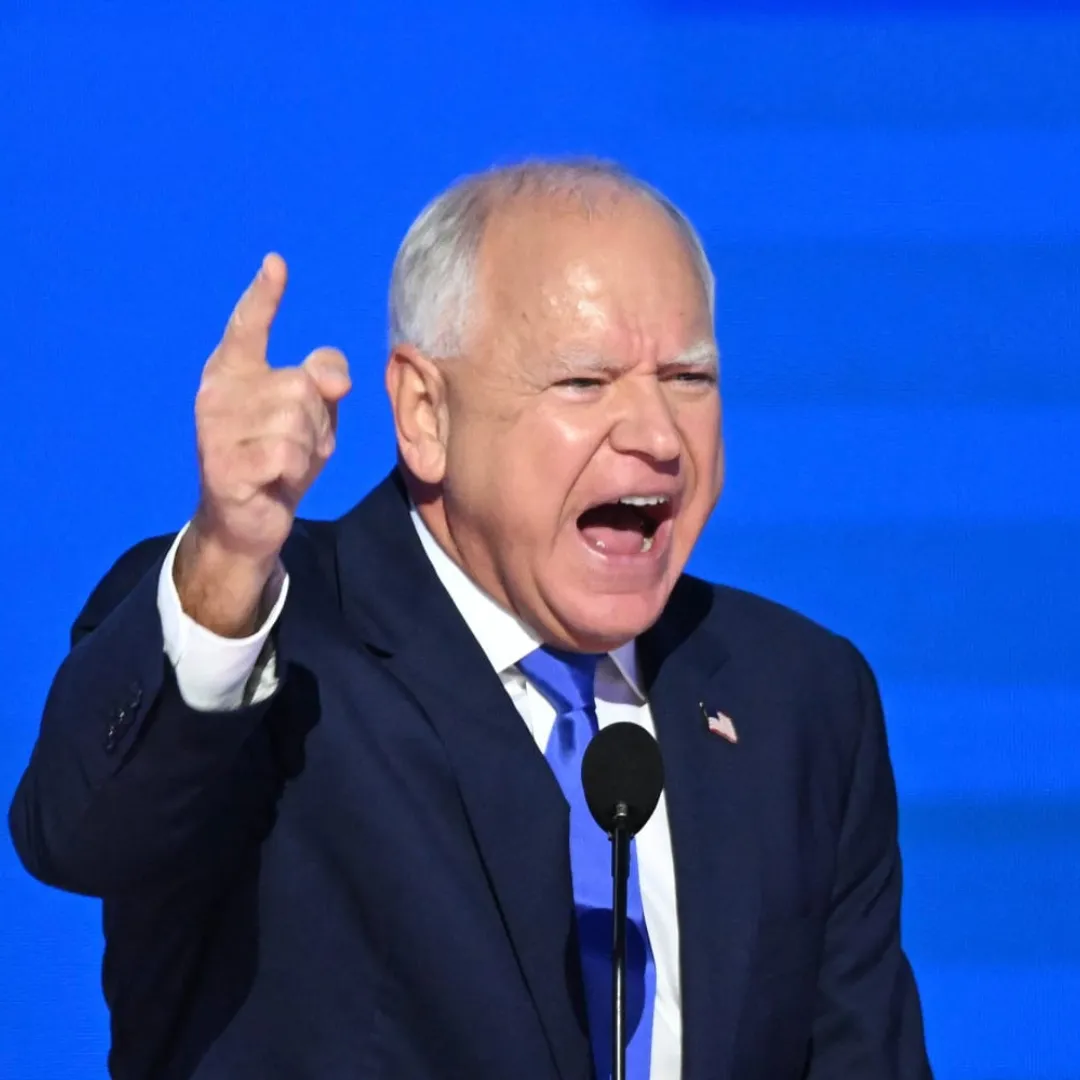
In a Sunday appearance on NBC’s “Meet the Press,” President Donald Trump sparked controversy by brushing off rising prices on essential consumer items, insisting they are insignificant compared to declining gas prices.
The interview, conducted by journalist Kristen Welker, quickly went viral after Trump interrupted her line of questioning to declare that the increasing costs of everyday goods such as tires, strollers, and clothing were “peanuts” compared to energy costs, especially gasoline.
His remarks have reignited public concern over the real economic impact of his ongoing tariff battles and have drawn criticism from working families who say they are struggling to keep up with rising costs.
As Welker pointed out the tangible price hikes that have followed Trump’s aggressive tariff policies, the president became defensive, interjecting before she finished her sentence. “Excuse me, that’s peanuts compared to energy,” Trump declared.
“Energy is 60 percent of the costs. Energy is the big—” He was quickly interrupted again by Welker, who reminded viewers that Trump had promised to bring prices down across the board from his very first day in office.
Rather than addressing the concern directly, Trump continued to minimize the impact of rising prices on non-energy items, including essential goods for families. “Well, I don’t know, when you say, ‘Strollers are going up,’ what kind of a thing — I’m saying gasoline is going down. Gasoline is thousands of times more important than a stroller,” he said, brushing off the increased costs of baby necessities as irrelevant.
The comment instantly drew backlash across social media and political circles, as critics accused the president of being out of touch with the realities facing average American families.

The president’s claim that declining gas prices make up for the rising cost of other consumer goods was met with skepticism from economists, who noted that the price of gasoline, though important, is only one piece of a much larger cost-of-living puzzle.
According to data from AAA, the national average for gas prices did decline by about 50 cents per gallon compared to the previous year by Trump’s 100th day in office. While this dip may offer some relief to drivers, it does little to offset the increasing costs of imported goods that millions of families rely on every day.
Trump’s escalating trade war—particularly the massive tariffs imposed on Chinese imports, some reaching as high as 145 percent—has led to significant volatility in both domestic and international markets.
Supply chains have been disrupted, businesses are struggling to manage rising import costs, and global allies such as Canada and members of the European Union have expressed alarm over the direction of U.S. trade policy. The president’s actions have been described by critics as reckless, with the potential to trigger long-term damage to both the U.S. and global economies.
In response to this growing criticism, Trump has doubled down on his economic strategy. Later on Sunday, while speaking with reporters aboard Air Force One, he made another remark referencing the NBC interview.
“Inflation’s down. All costs are down. Everything is down other than, as Kristen said, the thing that you carry the babies around in,” he said, again dismissing strollers—used by millions of American parents—as trivial. The repeated reference to strollers as an unimportant economic concern added fuel to the fire, with many accusing the president of showing indifference toward the financial pressures facing working-class families.
Throughout the “Meet the Press” interview, Trump maintained his trademark approach of claiming credit for any perceived economic success while shifting blame for lingering problems onto his predecessor, former President Biden. “I think the good parts are the Trump economy and the bad parts are the Biden economy, because he’s done a terrible job,” Trump said.

“He did a terrible job on everything.” The oversimplified narrative has become a familiar refrain from the former president, who frequently distinguishes between the two administrations in ways that ignore the complex interplay of policies, market forces, and long-term economic trends.
In an effort to provide intellectual backing for Trump’s strategy, Treasury Secretary Scott Bessent published an opinion piece in The Wall Street Journal on the same day. In the article, Bessent described the administration’s approach as “economic rebalancing,” claiming that the president was working to ensure that working families would not be left behind in the next era of growth.
“In the first 100 days of his presidency, we have laid the groundwork to rebalance global trade, restore America’s industrial base, and build an economy that allows Wall Street and Main Street to rise together,” Bessent wrote. He emphasized the importance of correcting the disparities left by previous trade agreements and argued that the administration’s efforts were essential to long-term prosperity.
Despite Bessent’s defense, the on-the-ground reality is painting a different picture. Reports from retailers across the country show increasing difficulty in maintaining stable pricing on goods that depend on foreign supply chains.
Items such as electronics, clothing, kitchen appliances, toys, and baby products are seeing price increases that many consumers are finding hard to absorb. Families already stretched thin by housing costs, healthcare expenses, and wage stagnation say the higher prices at checkout counters are anything but “peanuts.”
Moreover, some small businesses that rely on imported goods are beginning to scale back operations, lay off staff, or even shutter entirely due to the burden of increased costs.
While the administration insists that this short-term pain will yield long-term gains, that message is falling flat for families struggling to afford basics like diapers, school supplies, and groceries.
Economic analysts argue that the administration is taking a political gamble by focusing so narrowly on gas prices. While energy costs are a significant concern for many Americans, particularly drivers and transport-dependent industries, they do not exist in a vacuum.
A parent paying more for a stroller, formula, or children’s clothing may not feel any relief from a slight drop in gas prices. The overall cost of living is determined by a wide range of factors, and treating one sector as a justification to ignore others risks alienating voters who feel the effects of inflation in their everyday lives.
Trump’s handling of economic messaging is also raising questions about political tone. His remarks about strollers and dismissive tone toward rising prices have been labeled as tone-deaf by political opponents, who say the president is increasingly disconnected from the lived experience of working Americans.
Democrats are seizing the opportunity to paint Trump as callous and out of touch, with some already including clips from the “Meet the Press” interview in campaign ads targeting suburban and low-income voters.
Meanwhile, polling shows growing unease among the American public. While Trump’s approval ratings on economic management remain strong with his core base, there is evidence of softening support among independents and swing-state voters who are feeling the squeeze of rising prices.
For a president who has built much of his political identity on promises of economic resurgence and trade fairness, the perception that he is ignoring or minimizing real financial pain could prove costly.
The president’s insistence that the economy is on the right track is also being tested by market reactions. Wall Street has been volatile in recent weeks, with investors worried about the long-term impact of the tariff war.
Concerns about recession risks, disrupted supply chains, and retaliatory measures from trade partners are adding uncertainty to what had previously been a period of relative financial stability.
As the administration pushes forward with its trade policies, there is little indication that the president plans to adjust his rhetoric or strategy. Trump’s belief in the power of aggressive negotiation, tariffs, and unilateral action remains unchanged.
But the true test will be whether American families and businesses are willing to bear the burden of his policies long enough to see the promised benefits—or whether the rising cost of everything from baby strollers to holiday gifts becomes a political liability he can’t afford.





